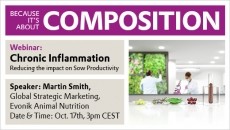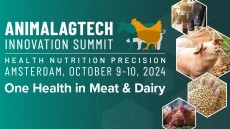Supporting the dairy cow’s immune system

Two large-scale field studies carried out by that company to test the effectiveness of its OmniGen nutritional supplement in real life ‘on-farm’ situations have shown that the can have a positive influence on dairy cow health, milk yield and milk quality.
“This was actually the result of a program our sales team put together. The concept was simple: customers wanted to know how OmniGen was working in their herd. Farms agreed to feed OmniGen to their cows for 90-150 days. We would collect data in that feeding period and compare it to an equal number of days prior to adding OmniGen to the diet. Over time we have built a huge database and that has allowed us to do this summary with over 1,000 herds,” Scott Bascom, dairy technology manager at Phibro, told FeedNavigator.
OmniGen is a combination of active ingredients, including aluminosilicates, vitamins and yeast components. Bascom flagged the significant level of scientific evaluation that Phibro has carried out on OmniGen.
The company said it designed the OmniGen family of nutritional specialty products to help dairy cows maintain a healthy immune system for improved health during all phases of lactation.
“We do a lot of scientific testing on the combination of components we use, to verify their efficacy in terms of modulating the immune system. So it’s a relatively simple formula, but it is how we source the ingredients and put them together that makes [the difference],” he said.
US immunity challenge
In the US, Phibro has conducted on-farm demonstrations over 11 years (between 2007 and 2018) with more than 650,000 dairy cows from 1004 herds as part of its ‘Immunity Challenge’ program.
OmniGen was added to feed formulations at a dose of 56g/0.125lb per cow per day and fed to dry and lactating cows for a 90-120-day period. A ‘before and after’ comparison compared changes in health and production parameters after the OmniGen feeding period with the same parameters measured during the three to four months prior to feeding with OmniGen.
Mastitis, ketosis and milk output were among the metrics measured during the study. Some 68% of herds reported mastitis prior to taking part in the study. In these herds, those fed OmniGen experienced a 12.6%reduction in monthly cases of mastitis. Similarly, cases of metritis, ketosis and retained placenta fell by 20.9, 18.5 and 19.8% respectively. Death loss also declined by 17.2%.
Herds of all sizes reported increases in milk production during the OmniGen feeding period. Of the 709 herds that provided milk production data, the average milk production improvement after completing the ‘Immunity Challenge’ was 1.08lb per cow per day.
European study
In Europe, a similar on-farm study was carried out, involving 44,300 cows. 244 dairy farms from Belgium, Italy, The Netherlands, France and the UK were enrolled on the program between 2015 and 2019. Farm records were collected for the 120-180-day period prior to the start of the feeding period and during the time that animals were fed 55g OmniGen per day.
These farms recorded an overall “statistically significant” improvement in health metrics, said Phibro. Retained placenta, metritis and mastitis were reduced by 34, 34 and 28% respectively. In addition, milk yield was improved by 0.45 kg per cow per day.
Presenting the results at the American Dairy Science Meetings this year, Phibro said in an abstract: “These results suggest that feeding OmniGen-AF to dry and lactating cows can have a positive influence on health, milk yield and milk quality on practical feed conditions”.
Modes of action
Moving forwards, Bascom said the focus of Phibro’s research would be trials comparing treatments versus a control within a university setting or private research facility.
“We will continue to look at health metrics and explore the mode of action - to understand how OmniGen helps support the cow’s immune system,” he said.
He explained that previous research into modes of action pointed to OmniGen’s impact on neutrophil function.
“Neutrophils move from the circulatory system to the site of infection - essentially they are the ‘first responders’ to a pathogen challenge. We know OmniGen impacts on neutrophils and how they perform that operation,” explained Bascom.


















